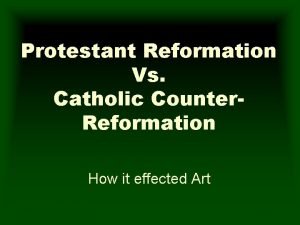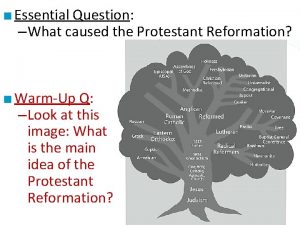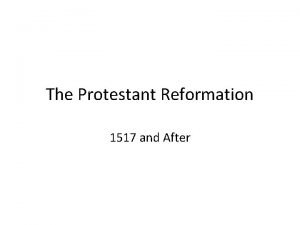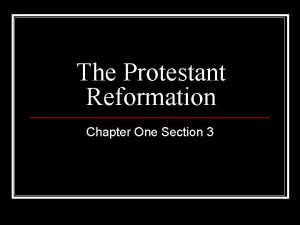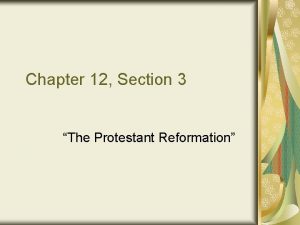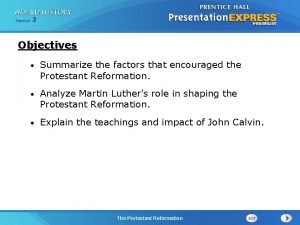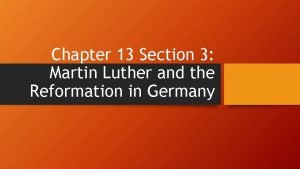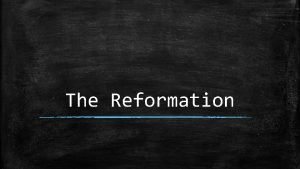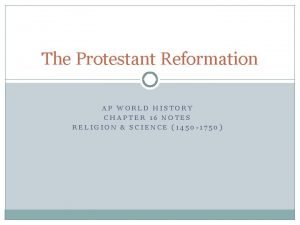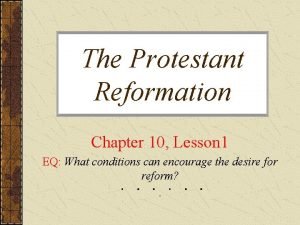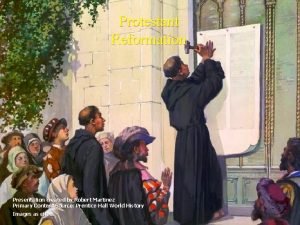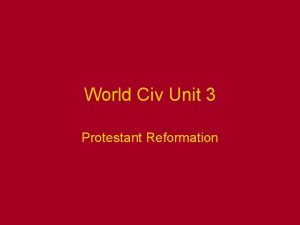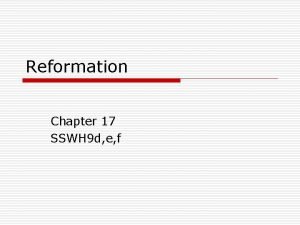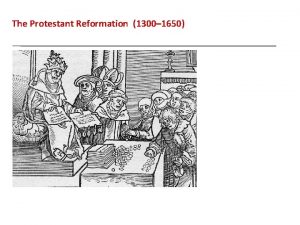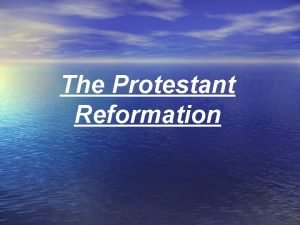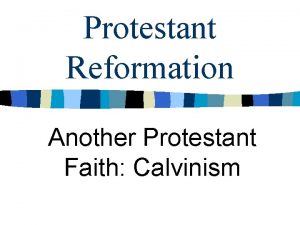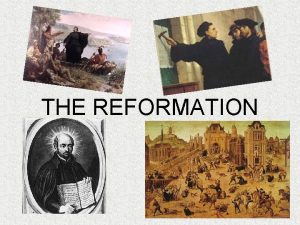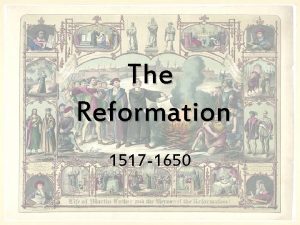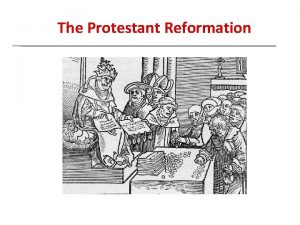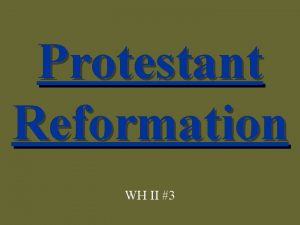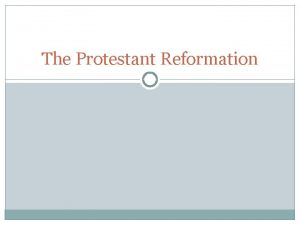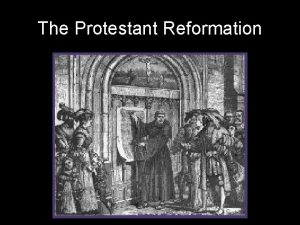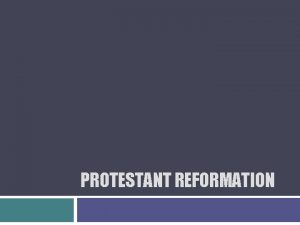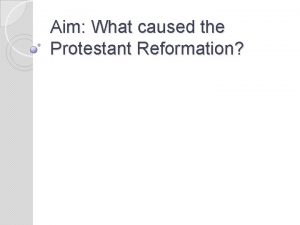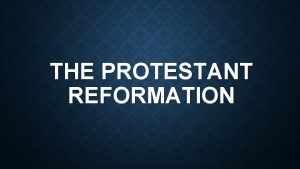The Protestant Reformation Protestant Reformation 1517 1650 w














- Slides: 14

The Protestant Reformation

Protestant Reformation 1517 -1650 w w w To protest = To object To reform = To change for the better The Protestant Reformation: Protested practices of the Catholic Church. It began as an attempt to reform the Catholic Church.

Underlying causes of the Reformation w The Renaissance, led people question the authority of the church and place greater faith in human reason. w The rise of nation-states led monarchs to resent the power of the pope in their countries.

Underlying Causes of the Reformation w Economic restrictions such as the ban on usury, or the lending of money at interest, created opposition among members of the new middle class. w People resented the tithe (10% tax). w Corruption within the Catholic Church caused a crisis of faith among believers.

Martin Luther w In Wittenburg Germany Martin Luther posted a list of complaints against the catholic church called The Ninety-Five Thesis, or questions for debate.

Luther condemned the church w Luther condemned the Catholic for : n n n Selling indulgences Nepotism Its interpretation of the Bible

Indulgences and Nepotism w Indulgences were pardons for sins that could be purchased. w It equaled paying forgiveness. w Nepotism: The Selling of positions of power within the Catholic Church. w Martin Luther believed that faith alone guaranteed salvation(afterlife).

Results of the Reformation w New Religions w Religious Wars w Greater power for civil authorities w The Counter-Reformation

Calvinism w Based on the teachings of John Calvin. w Predestination- only those chosen by god would get salvation. 1. Moral lives 2. Hard Work 3. Simple lives

Henry VIII w Henry was not a true reformer, yet broke from the Catholic Church and the pope. w When denied a divorce Henry issued the Act of Supremacy and created a national religion for England.

Religious Wars w Religious differences led to 100 years warfare. w Protestant England engaged in a naval war with Spain. w Thirty Years War in Germany (1618 -1648)

The Counter Reformation w Was an attempt to stop the spread of Protestant religions w Council of Trent w confirmed church teachings w instituted reforms such as ending the sale of indulgences.

Results of the Counter Reformation w The Inquisition - Church courts that had the power to execute those convicted of being heretics. w The Index- a list of books Catholics were forbidden to read

Results of the Counter Reformation w Religious persecution w Despite these moves the Counter Reformation was unable to restore the former membership, power and prestige of the church.
 Protestant reformation vs counter reformation
Protestant reformation vs counter reformation Branches of catholic church
Branches of catholic church What caused the protestant reformation?
What caused the protestant reformation? Protestant reformation map
Protestant reformation map Why did the sale of indulgences become a critical issue
Why did the sale of indulgences become a critical issue Unit 12 lesson 3 the protestant reformation
Unit 12 lesson 3 the protestant reformation What factors encouraged the protestant reformation?
What factors encouraged the protestant reformation? Chapter 13 section 3 the protestant reformation
Chapter 13 section 3 the protestant reformation Protestant reformation kahoot
Protestant reformation kahoot Chapter 16 lesson 2 the spread of protestantism
Chapter 16 lesson 2 the spread of protestantism The reformation in europe lesson 1
The reformation in europe lesson 1 Protestant reformation
Protestant reformation Unit 3: martin luther & the protestant reformation
Unit 3: martin luther & the protestant reformation Unit 3 martin luther and the protestant reformation
Unit 3 martin luther and the protestant reformation Excommunication def
Excommunication def
